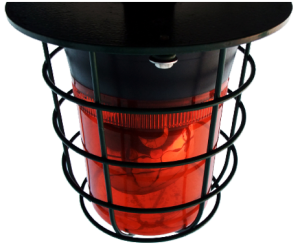A Fire Escape Guide for Hearing Impaired or Deaf People
Laws and Regulations

If you own or manage a commercial property you have a legal responsibility to protect everyone who lives or works within it from the threat of fire as far as is possible. In accordance with the Regulatory Reform (Fire Safety) Order 2005, this means conducting thorough and regular Fire Risk Assessments which should include comprehensive emergency evacuation plans.
These plans should detail how everyone likely to be in the building at any given time would safely and effectively escape, and this includes taking individual disabilities into account. Further legislation reinforces this requirement such as the Disability Discrimination Act (1995) which states employers must “take responsibility for ensuring that all people, including disabled people, can leave the building they control safely in the event of a fire”.
Additionally, public body Disability Equality Duty states that businesses must “ensure that disabled people do not face discrimination by not being provided with a safe evacuation plan from a building”.
Planning an Evacuation Procedure
One of the most important things to consider when planning an evacuation procedure for people who are deaf or hearing impaired is the actual fire alarm itself. Most fire alarm systems rely on sound which, if you are deaf or hard of hearing, will often be ineffective. This means you will need to plan an alarm procedure guaranteed to warn anyone with hearing problems of the presence of fire.
One of the most reliable ways to alert hearing impaired people of an emergency evacuation is to install a fire alarm system which features warning lights. In this instance, when the alarm is raised, light beacons flash to warn you of a fire in addition to the audible alarm.
Additionally, if sound enhancement systems are provided in your workplace – such as hearing loops or radio paging receivers – the message that an evacuation is in progress could be transmitted through those.
Personal Emergency Evacuation Plan (PEEP)
A Personal Emergency Evacuation Plan (PEEP) is the technical term given to an evacuation plan which is tailored to the individual needs of someone with a disability. It involves assessing the requirements of the named individual in detail, including the condition they suffer with and to what extent it will affect an evacuation.
You should also consider their location within your working environment, if they work alone or as a part of a team, if they require assistance in the event of an evacuation and if your current fire alarm system is an adequate means of warning.
Evacuation Procedure Checklist for Hearing Impaired People
When discussing and arranging a Personal Emergency Evacuation Plan for someone who is deaf or hard of hearing, the following information should be given to them:
- The systems which are available to alert them to an emergency evacuation eg. fire alarm sytems, light beacons, pagers, personal contact etc.
- The technical operation of these systems, including how to raise the alarm.
As the ‘responsible person’ in a commercial environment, it is the company owner or manager who must make sure the information has been comprehensively understood. They should also ask the following questions and ensure they are incorporated in the individual’s PEEP:
- Do you ever work alone in the building?
- Do you work out of hours?
- Can you hear the fire alarm?
- Do you work as part of a team?
- Is there always someone nearby who can warn you of an alarm?
- Do you have an email address?
- Do you have a text number?
Click here to download the print friendly checklist
Request a Callback
Just fill in your details below and we'll get back to you as soon as we can!

About Scutum London
Scutum London is a leading expert in fire safety and security solutions for businesses and organisations located across South East England, including London and Surrey.
From fire alarms, fire extinguishers and fire risk assessments to access control, CCTV and intruder alarm systems – and a lot more besides – we offer a comprehensive range of products and services designed to keep you, your business and your staff and visitors safe.
With decades of industry experience to call on, we’re proud to hold accreditations from leading trade associations and bodies such as British Approvals for Fire Equipment (BAFE), the British Fire Consortium, the Fire Industry Association (FIA) and Security Systems and Alarms Inspection Board (SSAIB).
If you’d like to find out more about Scutum London, get in touch with our friendly team or explore our products and services on our site.

